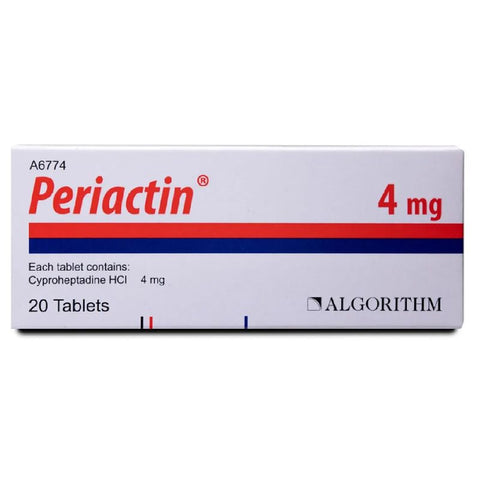




Uses of Periactin Tablets
Periactin tablets are commonly prescribed to address various health conditions. These tablets are primarily utilized to alleviate allergy symptoms, such as itching, sneezing, and runny nose. Additionally, they can be beneficial in managing migraines and stimulating appetite in individuals experiencing weight loss or appetite deficiencies.
Warnings Regarding Periactin Tablets
Prior to incorporating Periactin tablets into your healthcare routine, it is crucial to be aware of certain precautions. Individuals with a history of hypersensitivity to cyproheptadine or other antihistamines should exercise caution. Furthermore, these tablets should be used cautiously in individuals with a predisposition to glaucoma or those with a history of cardiovascular diseases.
Precautions Before Taking Periactin Tablets
Before initiating Periactin tablet consumption, consult with your healthcare provider, especially if you have existing medical conditions such as liver disease, kidney problems, or urinary retention issues. Pregnant or breastfeeding individuals should also seek professional advice before using these tablets.
Dosage Information for Periactin Tablets
General Dosage Information
For adults, the recommended initial dosage is usually one tablet three times a day. However, the dosage may be adjusted based on individual response and tolerance. It is essential to follow the prescribed dosage regimen diligently.
Specific Dosage Recommendations
Children between 2 to 6 years of age may be directed to take half a tablet two to three times a day, while those aged 7 to 14 may take one tablet two to three times daily. Always adhere to the dosage instructions provided by your healthcare professional.
Side Effects Associated with Periactin Tablets
Common Side Effects
Mild side effects may include drowsiness, dizziness, or dry mouth. These symptoms are usually temporary and diminish as the body adjusts to the medication. It is advisable to inform your healthcare provider if these effects persist or worsen.
Serious Side Effects
While rare, serious side effects may include severe allergic reactions, difficulty urinating, or irregular heartbeat. Seek immediate medical attention if you experience any of these symptoms.
Interactions with Other Medications
Inform your healthcare provider about all the medications you are currently taking, including over-the-counter drugs and herbal supplements. Periactin tablets may interact with certain substances, potentially affecting their efficacy or causing adverse effects.
Online Ordering Process for Periactin Tablets
For convenience, Periactin tablets can be ordered online through authorized pharmacies. Ensure that you purchase from reputable sources to guarantee the authenticity and quality of the medication.
Tips for Safely Storing Periactin Tablets
Store Periactin tablets in a cool, dry place, away from direct sunlight and moisture. Keep the medication out of reach of children and pets. Check the expiration date before use, and dispose of any expired tablets appropriately.
Promoting Proactive Health Management
Regular health check-ups are essential for individuals incorporating Periactin tablets into their routine. These check-ups enable proactive monitoring of overall health and ensure that any emerging issues are addressed promptly. Prioritize your well-being through consistent healthcare assessments.
Incorporate Periactin tablets into your healthcare regimen responsibly, following the guidance provided by your healthcare professional. Always prioritize your health and well-being for a proactive and balanced lifestyle.
